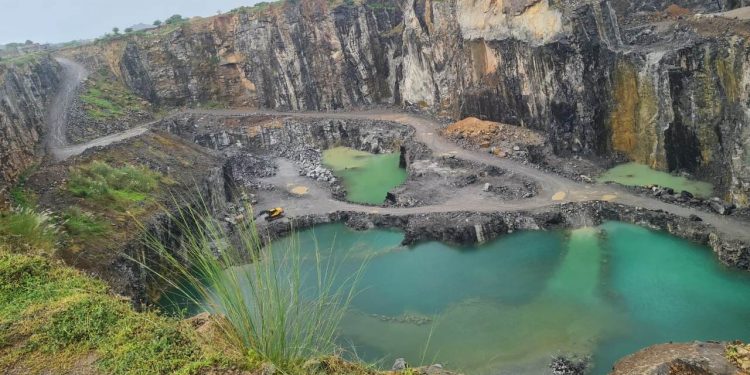Jajpur: Residents of Dharmasala block in Jajpur district are facing a severe water crisis due to unregulated extraction of minor minerals such as sand, granite, and morrum, in blatant violation of Odisha Minor Minerals Concession (Amendment) Rules, 2016. With the onset of summer, the groundwater table has receded sharply, leaving many borewells dry.
In various hills, open-pit mining operations have reportedly reached depths of up to 150 feet, accelerating the depletion of groundwater. While regulations mandate the backfilling of mines post-extraction, nearly 50 mining pits have been abandoned as it is. Some of these pits resemble large ponds.
The activities of local authorities, who are supposed to ensure enforcement of rules, are limited to collecting data on active mines. Consequently, over a hundred villages in the foothills are now struggling to access clean water.
Also Read: Bodies to check illegal mining ‘ineffective’
According to existing regulations, “long hole drills” should not exceed a depth of six metres, and “short hole drills” are restricted to 1 to 1.5 metres.
However, many operations have breached these limits, drilling all the way to the water table. The gravity of the situation can be gauged from the status of the groundwater table in villages like Dankari, Madhupurgarh, Kukudakhali, Bhubanpur, Panturi, Ragadipasi, Chadheidhara, Paitara, Daulatpur, Gogarsara, Barada, Jhatiapada, Kurikana, Batijoda, Baramana, Chadakamara, Sahanidiha, Antia, Kamagada, Bharatpur, Pachhukhundi, Ichhapur and Bedha. In some areas, piped water supply schemes have become non-functional.
While the local MLA has arranged water tankers for affected regions, the assistance is reportedly insufficient to meet the rising demand in the summer. Meanwhile, iron contamination in groundwater has come as a double whammy for several villages near mining zones. This has led to a surge in kidney-related ailments, with many reported cases of hospitalisation, said locals.
PNN






































